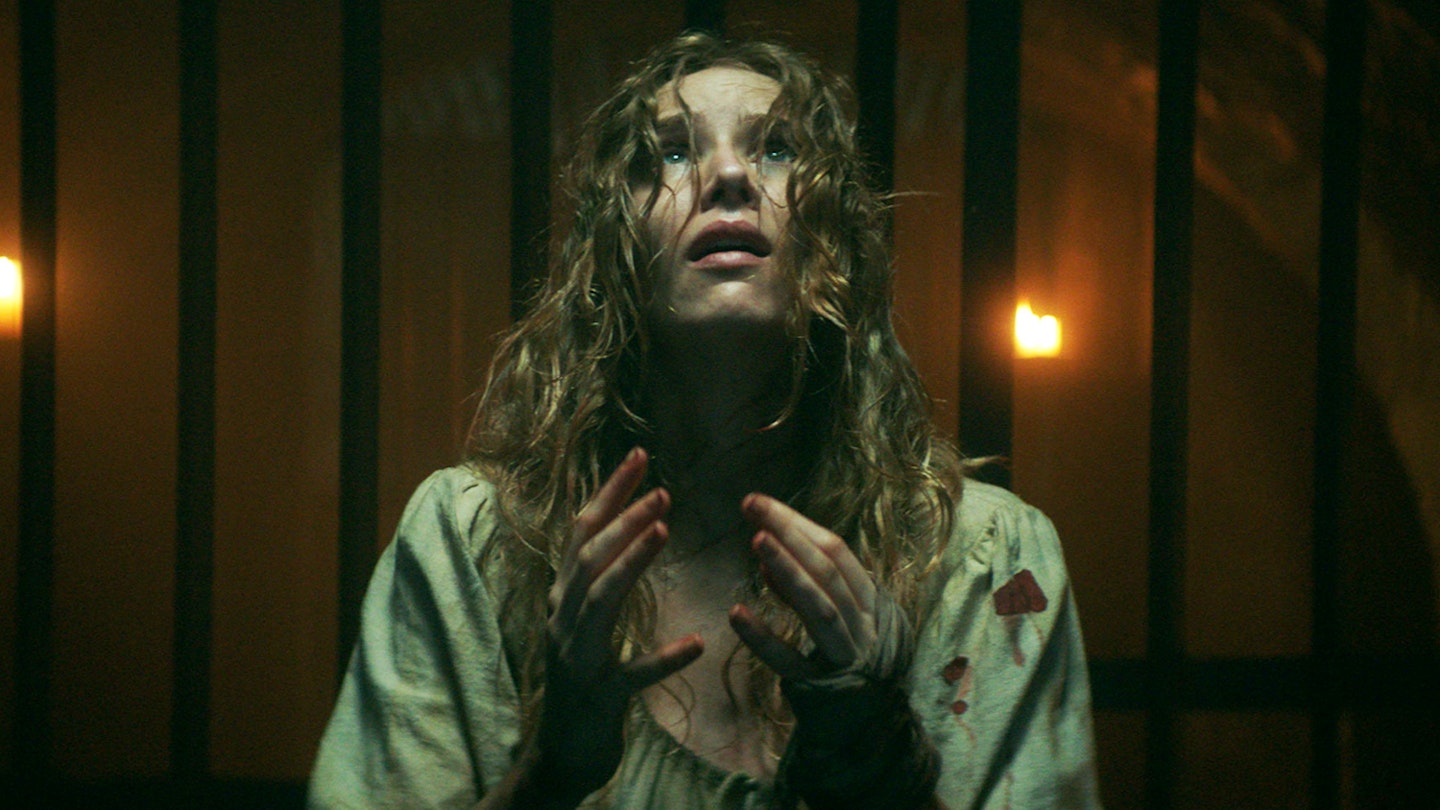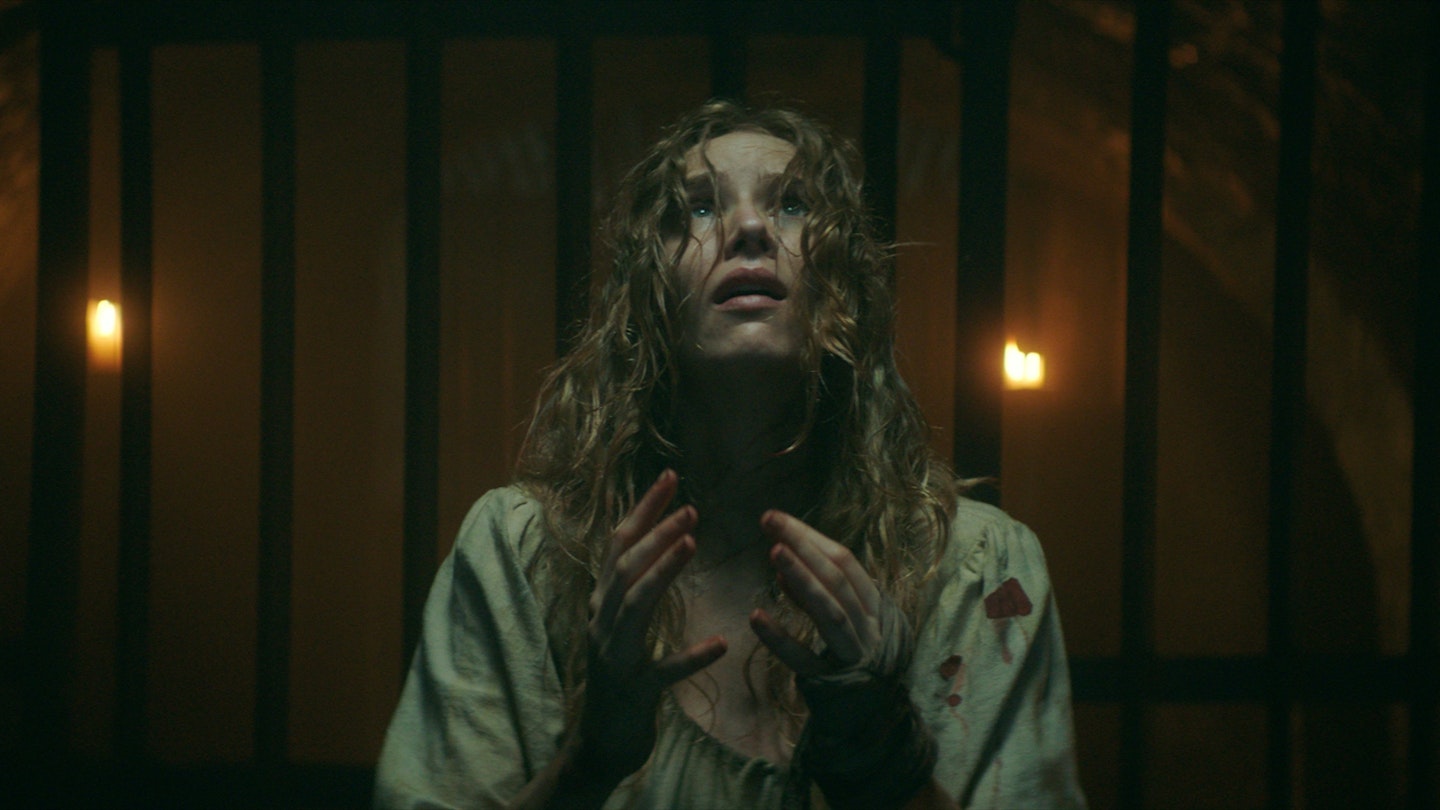If you’ve ever dreamed of a film where Sean Pertwee rides a horse in slow motion, wearing a huge hat, to a booming organ score — and, frankly, who hasn’t? — then The Reckoning is for you. Neil Marshall’s first film since his lacklustre Hellboy adaptation sees the filmmaker return to British-based, small-scale horror (and Pertwee). Pulling a fictional yarn out of both the Great Plague and the English 17th-century witch hunts, The Reckoning follows a recently widowed mother falsely accused of being in league with the devil. Marshall’s approach eschews both the grim, compelling qualities of the similarly themed Witchfinder General and the lurid fun of Hammer, instead landing on an unsatisfying halfway house between the two. The Reckoning has good intentions — seemingly to course-correct the ingrained misogyny within the period and the genre — yet falls into the trap of becoming the thing it is apparently trying to deconstruct.
The film kicks off awkwardly with a prologue sketching the Plague/witch-hunt context, followed by an overblown sequence that cross-cuts Grace (a game Charlotte Kirk) and husband Joseph’s (Joe Anderson) last day together with Grace, now a widow, struggling to bury her deceased spouse, who has committed suicide to save his wife from the disease. The meat of the movie begins with Grace being arrested for witchcraft by sleaze-bag squire Pendleton (a one-note Steven Waddington). Resisting initial attempts to make her own up to her falsified crimes, Pendleton calls in Judge Moorcroft (Sean Pertwee), who we learn burnt Grace’s mother at the stake, to turn the screw on Grace, denying her sleep, stabbing the soles of her feet and employing the dreaded Pear Of Anguish (think the dildo from hell) torture device.
It is too stylised and clean to be an authentic period piece, but not vulgar enough to play as grindhouse fodder
Subsequently the film becomes a one-dimensional battle of wits as Grace won’t admit to being something she is not and Moorcroft tries every trick in ye olde book to force her to confess, Pertwee, ironically having fun as a man doing his job rather than taking joy in it, delivering ripe on-the-nose lines (“My will is greater than yours”) with enthusiasm.
The film could have done more with Pertwee’s big-eyed energy. It is too stylised and clean to be an authentic period piece, but not vulgar enough to play as grindhouse fodder. Time and again the story is punctuated by unnecessary dream/fantasy sequences conjuring up Grace’s demons and fears to deliver well-executed but cheap scares. Perhaps the scariest thing about The Reckoning is how spookily timely it is. Although it was conceived and produced before Covid-19, there is something preternatural about its Plague-set premise, be it the sense of social distancing or the mob mentality leading to persecution.
There is also a Time’s Up strand to its story, of women being gas-lighted, disbelieved and persecuted. Yet for all its images of ‘female empowerment’ — Kirk co-wrote the screenplay with Marshall and Edward Evers-Swindell — there is still the sense it is serving up constant scenes of women being slapped, groped, beaten (there’s an attempted rape), tortured and burnt (cue terrible CG fire) as entertainment. There are also potentially interesting women here — Grace’s bestie Kate (Sarah Lambie), Moorcroft’s assistant Ursula (Suzanna Magowan) who is scarred from surviving a burning — that feel barely sketched, reduced to the sidelines. It’s a shame, because the story-world is rich with potential for both classic scares and modern commentary. Sadly, The Reckoning manages neither.

